Forget brain training — you can get smarter just by sleeping, says neuroscientist
Dr. Jamey Maniscalco shares exactly how sleep helps learning, brain health and more

Here at Tom’s Guide our expert editors are committed to bringing you the best news, reviews and guides to help you stay informed and ahead of the curve!
You are now subscribed
Your newsletter sign-up was successful
Want to add more newsletters?

Daily (Mon-Sun)
Tom's Guide Daily
Sign up to get the latest updates on all of your favorite content! From cutting-edge tech news and the hottest streaming buzz to unbeatable deals on the best products and in-depth reviews, we’ve got you covered.

Weekly on Thursday
Tom's AI Guide
Be AI savvy with your weekly newsletter summing up all the biggest AI news you need to know. Plus, analysis from our AI editor and tips on how to use the latest AI tools!

Weekly on Friday
Tom's iGuide
Unlock the vast world of Apple news straight to your inbox. With coverage on everything from exciting product launches to essential software updates, this is your go-to source for the latest updates on all the best Apple content.

Weekly on Monday
Tom's Streaming Guide
Our weekly newsletter is expertly crafted to immerse you in the world of streaming. Stay updated on the latest releases and our top recommendations across your favorite streaming platforms.
Join the club
Get full access to premium articles, exclusive features and a growing list of member rewards.
You've probably noticed that you feel more alert and capable after a good night's sleep, and perhaps even that you perform better at work or in your studies. But what exactly is happening while you snooze, and is sleeping really making you smarter?
Research has shown the importance of sleep and learning, in fact, one review of 23 studies looking at the relationship between sleep and learning in doctors in training found that sleep is absolutely fundamental to memory and learning.
Of course, one way to ensure you're getting a great sleep that's conducive to learning is by having one of the best mattresses in your bedroom, but there's more to it than that.
To find out if, and how, sleep makes us smarter, and how we can improve our sleep for the best chance of learning and a healthy brain, we spoke to neuroscientist and founder of Manifest Wellness, Dr. Jamey Maniscalco.
Can sleep really make you smarter?
The short answer from Dr. Maniscalco? "Yes!"
"Sleep is one of the most powerful tools we have to boost brain function," he says. "While it doesn’t make us smarter in the 'IQ-test' sense overnight, sleep enhances our ability to learn, remember, think clearly, and solve problems."
So how exactly is this happening? Dr. Maniscalco says that during sleep, and especially deep sleep and REM sleep, our brains aren't resting. In fact, it's quite the opposite.
Get instant access to breaking news, the hottest reviews, great deals and helpful tips.
If you want to learn better and think more clearly, improving your sleep is one of the smartest moves you can make
"During sleep our brain is actively processing information, making connections, and strengthening the pathways that support intelligence, memory, and creativity," he explains.
"What this really highlights is that much of your learning doesn’t happen while you’re studying or experiencing — it happens while you’re sleeping," he adds.
"So, if you want to learn better and think more clearly, improving your sleep is one of the smartest moves you can make."
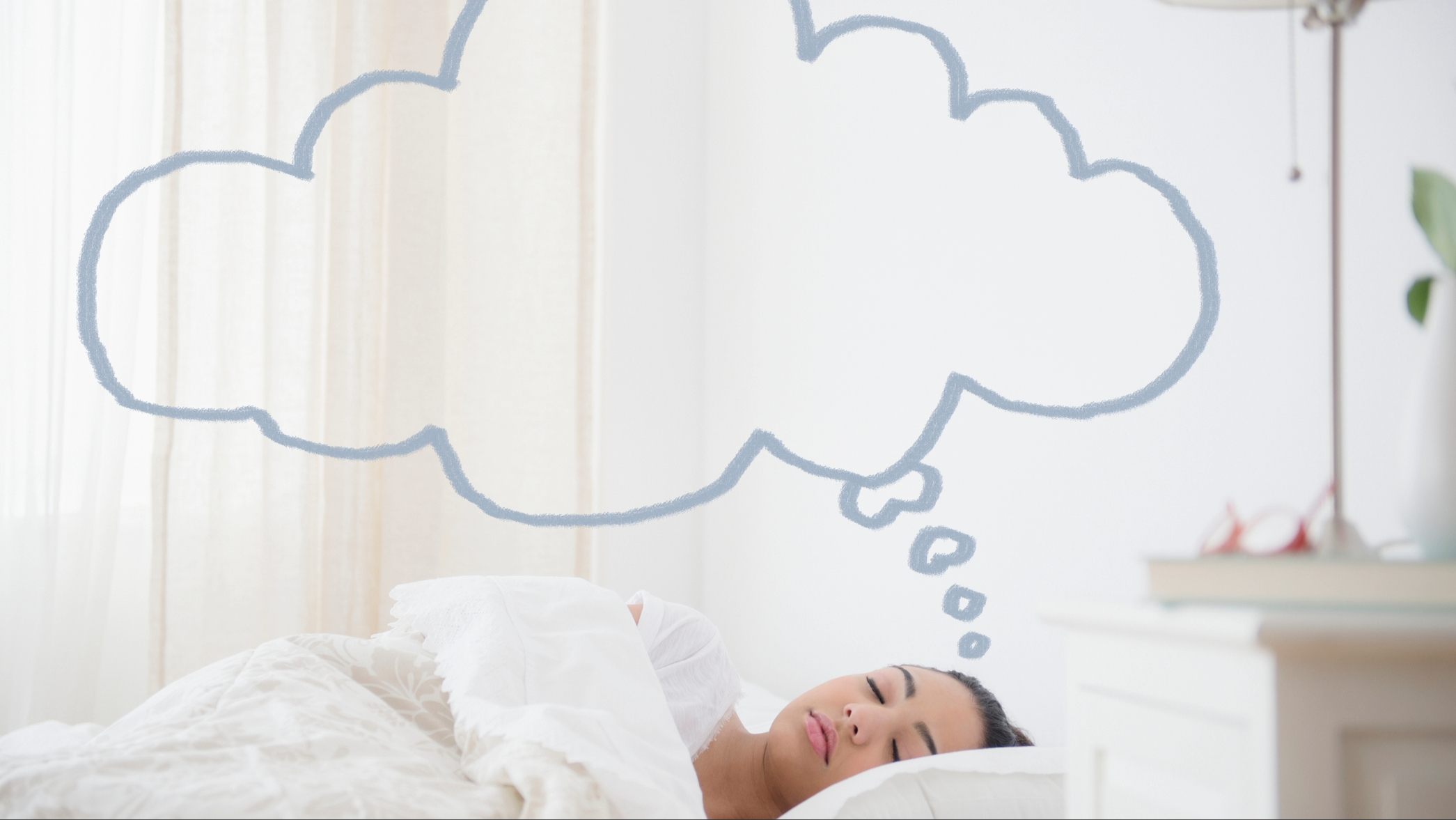
There are even a number of studies that have looked into the effect of sleep on academic performance, indicating that sleep has a pretty significant impact.
One study analyzed the sleep of 100 students who wore activity trackers and found that "longer sleep duration, better sleep quality, and greater sleep consistency were associated with better academic performance."
The role of sleeping in learning
Sleep is "absolutely essential for learning," says Dr. Maniscalco. Below, he explains how...
Memory consolidation
Spending time studying or trying to learn a new skill isn't going to be very useful if you can't remember what you've learned. Sleep, Dr. Maniscalco explains, is vital for this.
"After we learn something new, the brain needs time to 'lock it in.' That happens during sleep. Sleep stabilizes and strengthens the neural connections formed during the day, a process known as memory consolidation," he says.
"It’s especially true during deep (slow-wave) sleep, when factual information and motor skills are stored, and during REM sleep, which helps integrate memories and emotions."
Brain health
Sleep plays a role in ensuring our brains stay healthy, which is essential for learning effectively.
"Just like we wouldn’t expect a machine to run well without regular cleaning, the brain needs sleep to remove metabolic by-products and stay healthy," Dr. Maniscalco says, describing sleep as our brain's "nightly maintenance window."
"During deep sleep, a system called the glymphatic system flushes out waste products, including beta-amyloid — a protein linked to Alzheimer’s disease when it accumulates."
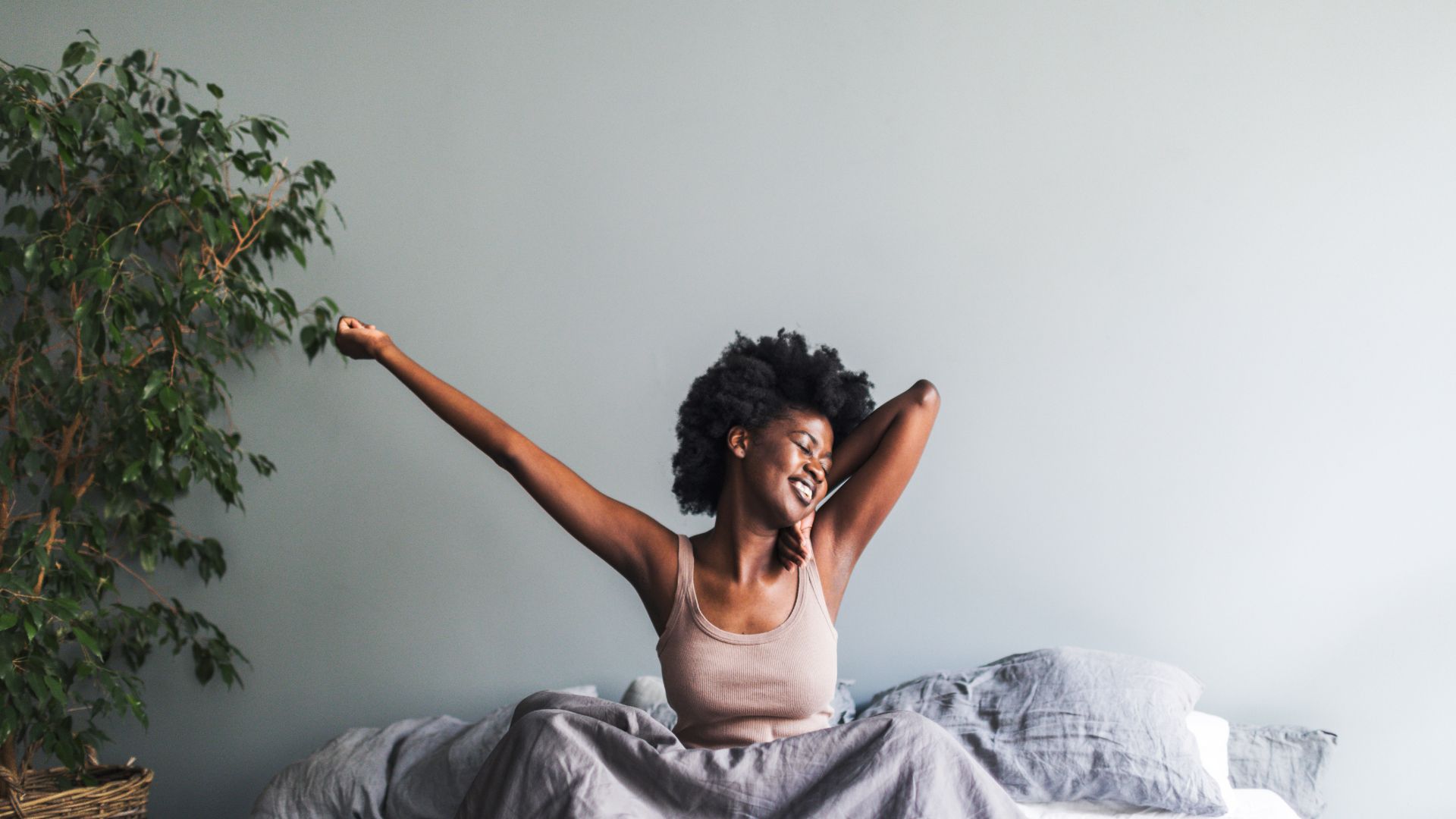
Cognitive function
"Sleep affects how we think, solve problems, and regulate emotions. A well-rested brain has stronger executive function — the set of mental skills we use for planning, decision-making, and goal setting," Dr. Maniscalco tells us.
On the flip side, research has shown that sleep deprivation can negatively impact a number of areas of cognitive performance, including judgement and decision-making, memory, attention and alertness.
"Lack of sleep impairs attention, mental flexibility, and impulse control, making it harder to learn, retain, and apply new knowledge," Dr. Maniscalco explains.
Sleep tips for getting smarter
Ideally all sleep would be top quality, but that's not always the case. To assist you in getting sleep that actually helps your brain health, we've asked Dr. Maniscalco to compile some neuroscientist-approved tips:
1. Be consistent
There's a reason our Sleep Features Editor relies on her sleep schedule to keep her nightly sleep score in the 90s. It's a vital tool for maintaining good sleep.
"A consistent sleep schedule helps align your internal clock (the circadian rhythm) which regulates not just sleep, but also hormone levels, body temperature, and brain function," explains Dr. Maniscalco.
And, a healthy circadian rhythm means you'll be getting the sleep you need for your brain to work at its best.
"When you go to bed and wake up at the same time every day, your brain learns when to release melatonin and when to enter deeper, more restorative stages of sleep. This improves the quality of sleep and maximizes the brain benefits that support learning," he says.
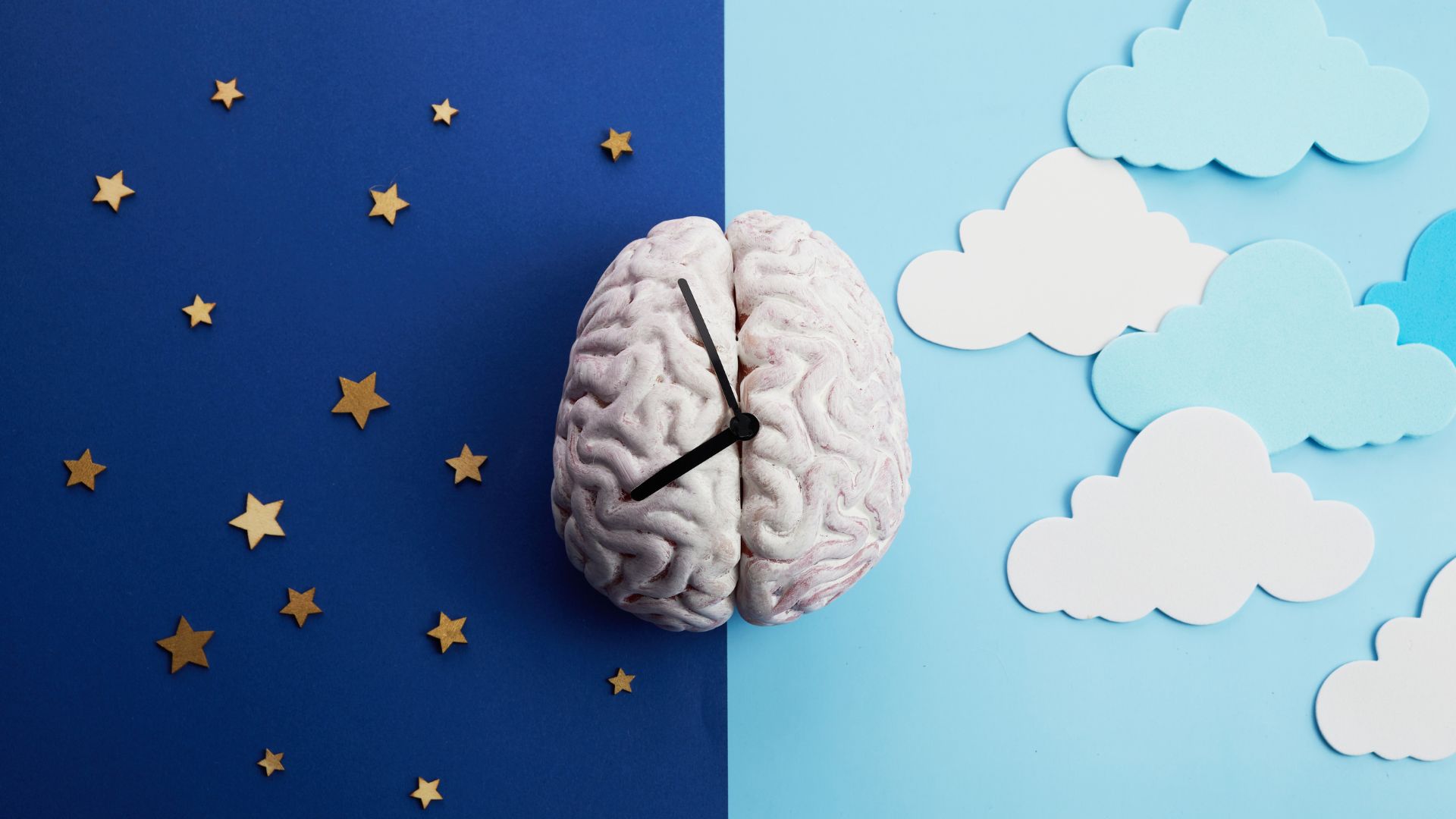
2. Create the right sleep environment
"Your bedroom should be a sanctuary for rest — not stimulation, and most of us neglect this. The environment you sleep in sends signals to your brain about whether it’s time to stay alert or to wind down," says Dr. Maniscalco.
To create a sleep environment that optimizes brain health, learning, and deep rest, Dr. Maniscalco recommends measures like keeping your bedroom cool, around 65°F (18°C), as it "mimics the body’s natural nighttime temperature rhythm and promotes deeper, more restorative sleep."
Your bedroom should be a sanctuary for rest
Using silence or white noise (from white noise machines, fans or apps) can help to avoid noises disrupting your sleep and to "create a steady auditory environment that promotes deeper rest."
He also highlights the importance of darkness, as it triggers melatonin release, suggesting blackout blinds or an eye mask. Meanwhile, banning screens from the bedroom helps it remain a place you associate with sleep and intimacy, and avoids keeping you awake.
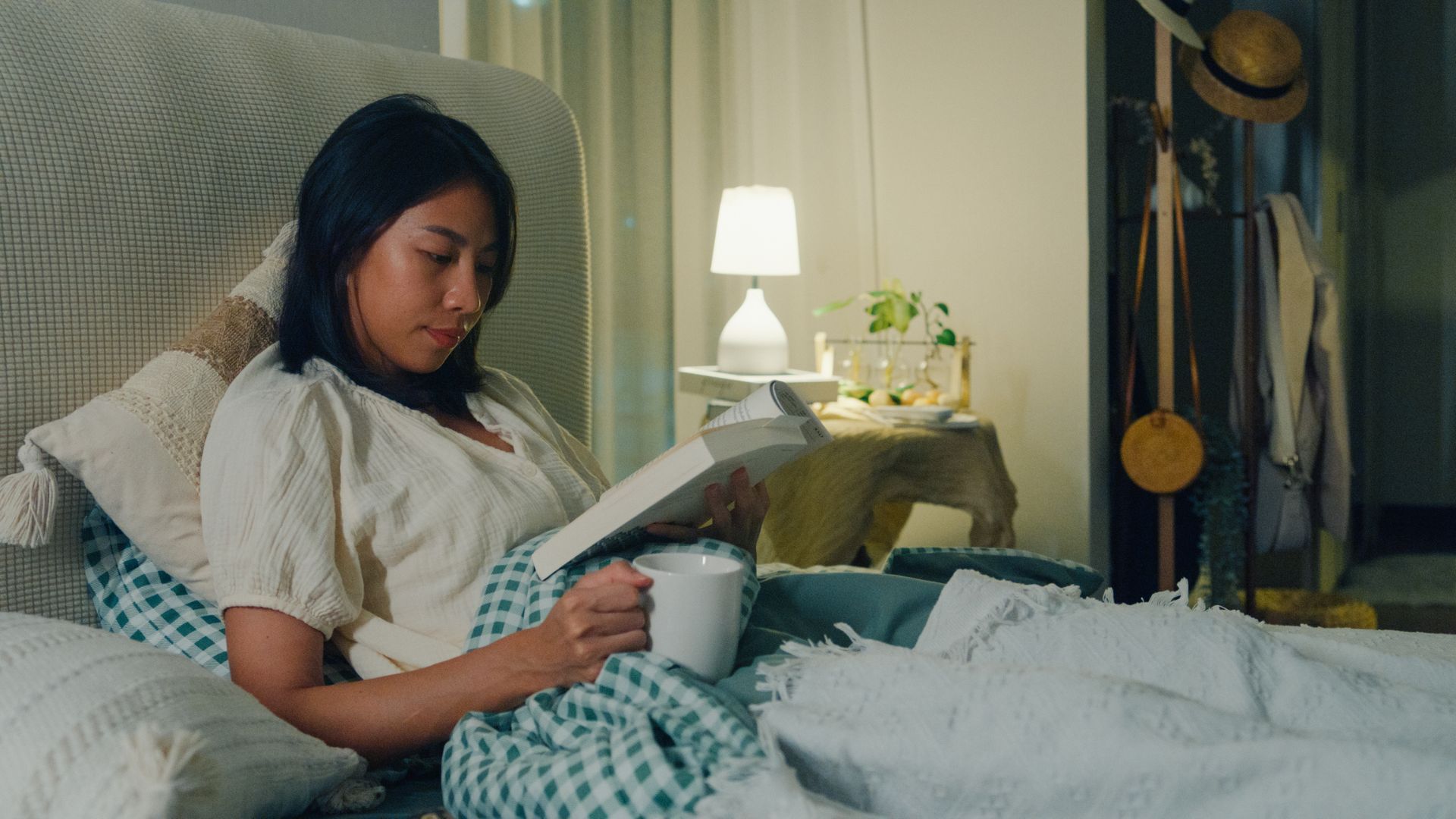
"Blue light from phones, TVs, and tablets suppresses melatonin and delays sleep onset. But beyond the light exposure, screens also stimulate the brain," Dr. Maniscalco explains.
There's also a simple (and pleasant) way to create a gentle olfactory cue to your brain that it's bedtime.
Essential oils like lavender, cedarwood, chamomile, or sandalwood, "have been shown to reduce anxiety and activate the parasympathetic nervous system (the 'rest and digest' nervous system)," adds Dr. Maniscalco, who suggests a diffuser or a few drops on your pillow.
And, don't forget that having the best mattress, best pillow and top bedding gear for your sleep needs is the foundation for a healthy sleep environment.
3. Get 7-9 hours sleep each night
The National Institutes of Health recommends 7-9 hours of sleep for adults. Why?
"The recommended 7–9 hours of sleep isn’t a luxury — it’s a biological necessity," says Dr. Maniscalco, who explains that "this range isn’t arbitrary; it reflects the amount of time most adults need to complete multiple full sleep cycles, each containing the critical stages of light sleep, deep sleep, and REM sleep."
The recommended 7–9 hours of sleep isn’t a luxury — it’s a biological necessity
"Each stage plays a distinct and essential role in brain function... from repairing cells and consolidating memories to regulating mood and supporting learning and creativity," he adds.
"If you want to think clearly, retain what you learn, and protect your brain long-term, prioritizing 7–9 hours of quality sleep is non-negotiable," he says.
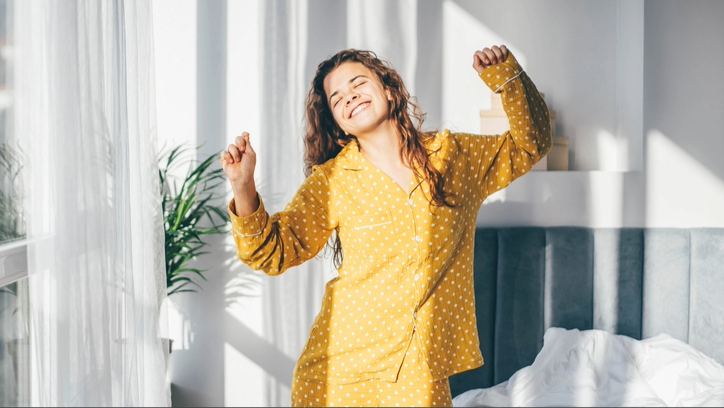
As well as keeping a consistent sleep schedule, keeping your bedroom cool and avoiding screens 1-2 hours before bed (see above for more on these), Dr. Maniscalco also recommends the following:
- Get morning sunlight exposure: "One of the best ways to anchor your circadian rhythm is to get natural light exposure within the first hour of waking, ideally for 10–30 minutes. Sunlight signals your brain that it’s daytime, boosting alertness, setting the timer for melatonin release later that night — helping you fall asleep more easily at bedtime."
- Limit caffeine after midday: "Caffeine can linger in your system for 6–8 hours or more. That cup of coffee or energy drink at 3pm might be blocking your brain’s ability to wind down at 11pm. If you’re sensitive to caffeine or struggling with sleep, try cutting it off by noon or switching to decaf."
- Create a wind-down ritual: "Your brain needs cues that it’s time to shift from 'go mode' to 'rest mode.' Reading, stretching, journaling, taking a warm bath, or listening to calming music are all excellent ways to ease the transition and trigger melatonin release."
- Try a “brain dump” before bed: "If racing thoughts keep you up, spend five minutes writing them down on paper. This reduces cognitive load and tells your brain it can safely let go for the night."
- Limit alcohol and large meals before bed
"Alcohol may help you fall asleep faster, but it disrupts REM sleep and leads to more fragmented rest. Similarly, heavy meals can interfere with digestion and core temperature regulation, making sleep more restless." - Use light strategically: "Dim your lights in the evening to signal 'biological nighttime,' and avoid bright, overhead lighting. In the morning, do the opposite. [...] open the blinds or step outside for a few minutes of bright light."
Jenny Haward is a U.K. based freelance journalist and editor with more than 15 years of experience in digital and print media. Her work has appeared in PEOPLE, Newsweek, Huffpost, Stylist, ELLE, The Sydney Morning Herald and more. Jenny specializes in health, wellness and lifestyle, taking a particular interest in sleep.
You must confirm your public display name before commenting
Please logout and then login again, you will then be prompted to enter your display name.
 Club Benefits
Club Benefits










